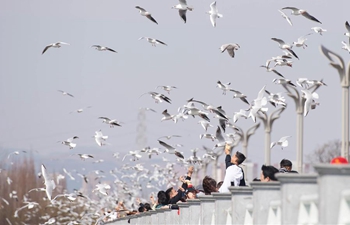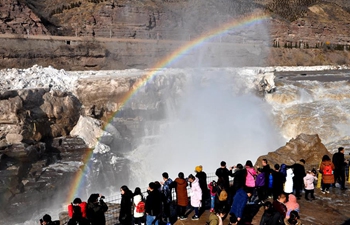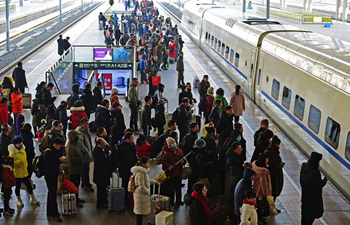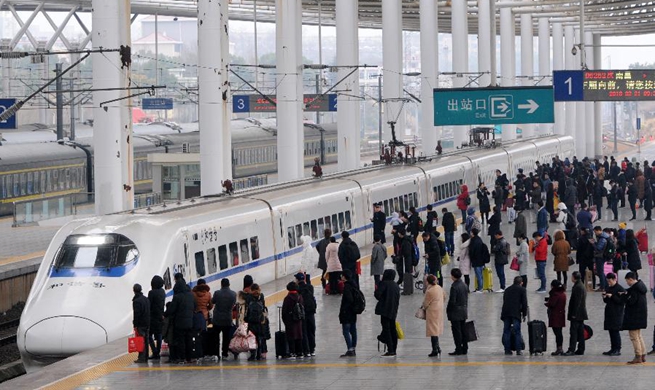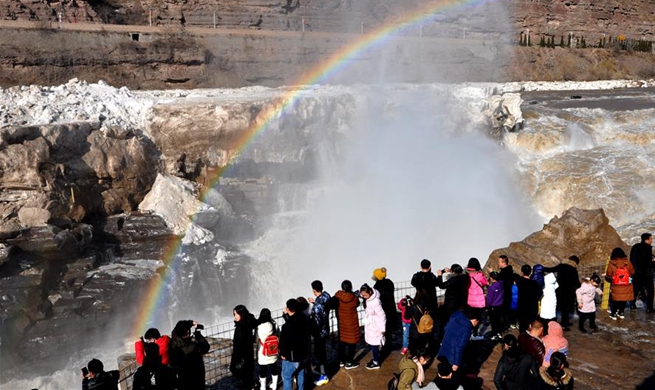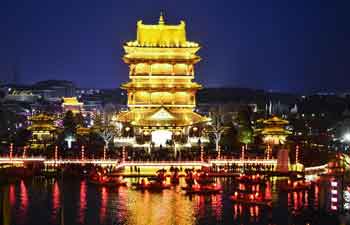UNITED NATIONS, Feb. 20 (Xinhua) -- Palestinian President Mahmoud Abbas on Tuesday questioned what he called the White House's "strange" policies on the Middle East.
"We met with the president of the United States, Donald Trump, four times in 2017 and we have expressed our absolute readiness to reach a historic peace agreement. We repeatedly reaffirmed our position in accordance with international law, the relevant UN resolutions and the two-state solution on the basis of the 1967 borders," Abbas said in a speech to the Security Council.
"Yet this administration (of Trump) has not clarified its position. Is it for the two-state solution, or for one-state?" Abbas asked.
"And, then, in a dangerous, unprecedented manner, this administration undertook an unlawful decision, which was rejected by the international community, to remove the issue of Jerusalem 'off the table' and to recognize the city as
"It did so ignoring that East Jerusalem is part of the Palestinian territory occupied since 1967 and is our capital, which we wish to be a city open to all faithful of the three monotheistic religions -- Islam, Christianity and Judaism." Abbas said the United States has contradicted itself and contradicted its own commitments and has violated international law and the relevant (UN) resolutions with its decision regarding Jerusalem. It is also strange that the United States still lists the Palestine Liberation Organization on its terror list and imposes restrictions on the work of the Palestinian mission in Washington "under the pretext" of congressional decisions since 1987, said Abbas in a monthly debate of the Security Council over the Middle East situation. "If the Congress thinks we are terrorists, how was that the administration is having relations with us, how was that it's visiting us, how was that it's providing assistance to us?" he asked, in the presence of a stone-faced Nikki Haley, the U.S. ambassador to the United Nations. "How, how come? How do you help 'terrorists'?" Abbas asked. And, most recently, said Abbas, Washington has decided to punish the Palestinian refugees by steeply reducing its contribution to the UN agency that is tasked to help with the livelihood of more than 5 million Palestinian refugees -- both within the occupied territory and in Jordan, Lebanon and Syria. In response, Haley said: "The United States knows the Palestinian leadership was very unhappy with the decision to move our embassy to Jerusalem. You don't have to like that decision. You don't have to praise it. You don't even have to accept it. But know this: that decision will not change." By the time Haley was speaking, Abbas had left the chamber. But she insisted she would address the balance of her remarks to Abbas. In his speech, Abbas asked the Security Council for help. "We come here before your august council in the midst of the deadlock of the peace process due to the U.S. decision regarding Jerusalem, Israel's ongoing illegal settlement activities, its violation of the resolutions of this council, and its disrespect of the signed agreements," he said. "We are ready to begin negotiations immediately in order to achieve the freedom and independence of our people, just like all other nations, and to achieve peace and security for all in our region and the world, so that future generations can enjoy the benefits of this peace." "This Security Council is the highest entity to which the peoples of the world seek sanctuary and protection. After this council, we rest our issue to the Almighty. For, if justice for our people cannot be attained here, then to where should we go?" asked Abbas.




